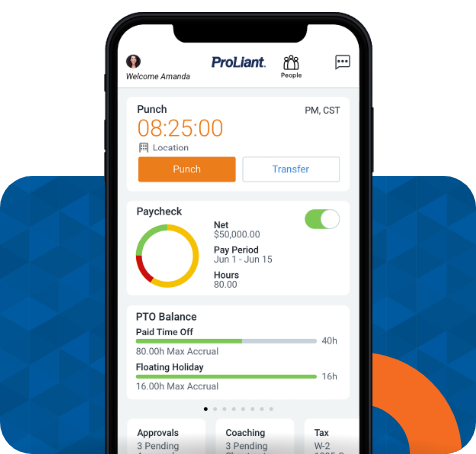In today's fast-paced business environment, effective team collaboration is crucial for success. With seamless collaboration, teams are able to foster a culture of innovative thinking and solve problems more efficiently. With this in mind, businesses are becoming increasingly reliant on technology and HR services that enhance overall productivity by not only facilitating smoother communication but also creating a supportive teamwork-focused work environment.
The Role of Collaboration Technology in Enhancing Teamwork
Collaboration technology encompasses a range of digital tools designed to facilitate teamwork, including communication platforms like Slack, project management software like Asana, and file-sharing services like Google Drive. These technologies enable teams to communicate in real-time, share resources, and track progress, regardless of geographical location. By breaking down barriers to communication and providing a centralized hub for project coordination, collaboration technology streamlines workflows, reduces miscommunication, and ensures that all team members are aligned with project goals. The result is a more cohesive and productive team that can respond quickly to challenges and opportunities.
Key Features of Effective Collaboration Technology
When it comes to enhancing teamwork, the benefits of effective collaboration technology can be characterized by a few key features. Real-time communication tools, such as chat and video conferencing platforms, allow team members to instantly connect, discuss, and resolve issues as they arise. File sharing and document collaboration features enable teams to work together on documents, spreadsheets, and presentations, with everyone having access to the latest version. Additionally, integration with other software and platforms, like CRM or project management tools, ensures that all relevant information is easily accessible in one place. These features collectively foster a more dynamic, connected, and efficient work environment, empowering teams to achieve their goals more effectively.
HR Services that Foster Team Collaboration
HR services play a pivotal role in nurturing a collaborative work environment. By organizing team-building activities, HR helps strengthen relationships among team members, fostering trust and open communication. Conflict resolution services provided by HR are also crucial, as they help address and mitigate interpersonal issues that could hinder collaboration. Additionally, HR's involvement in creating clear communication channels, setting expectations, and providing ongoing support ensures that teams have the necessary tools and guidance to work together effectively. The consistent presence of HR in maintaining a positive and collaborative work culture is essential for teams to function cohesively and achieve collective success.
Integration of Collaboration Technology and HR Services
Collaboration technology and HR services are most effective when integrated seamlessly. HR software with built-in collaboration tools, such as employee portals and team communication platforms, allows for a unified approach to managing both people and projects. For example, an HR system that integrates with project management tools can streamline onboarding processes, automatically assigning new employees to relevant teams and providing access to necessary resources. This integration ensures that team collaboration is supported from the moment an employee joins the company. By combining the strengths of both technology and HR services, organizations can create a cohesive environment where collaboration is naturally embedded into daily workflows.
Practical Applications
Many companies have successfully implemented collaboration technology and HR services to enhance team performance. For instance, tech giants like Microsoft use integrated platforms like Microsoft Teams, which combines chat, video conferencing, and document collaboration within their HR systems, to streamline communication and project management across global teams. Another example is Zappos, known for its strong company culture, where HR actively promotes collaboration through team-building exercises and conflict resolution programs. These efforts have led to improved team cohesion, faster decision-making, and increased productivity. By building a strong collaborative culture, organizations can see significant improvements in how their teams work together and achieve their objectives.
Challenges and Solutions
Implementing collaboration technology and HR services can present challenges, such as resistance to change, lack of training, and integration issues. To overcome these, organizations should invest in comprehensive training programs to familiarize employees with new tools and processes. Additionally, selecting technology that seamlessly integrates with existing systems can reduce disruptions. Addressing concerns through clear communication and involving teams in the implementation process can also ease the transition and foster acceptance.
Takeaway
In today’s interconnected work environment, collaboration technology and HR services are essential for fostering a productive and cohesive team. These tools not only enhance communication and streamline workflows but also create a supportive culture where teamwork can thrive. By integrating these solutions effectively, organizations can build strong, collaborative teams that drive success and innovation. Prioritizing these elements is key to maintaining a dynamic and engaged workforce.







No Comments Yet
Let us know what you think